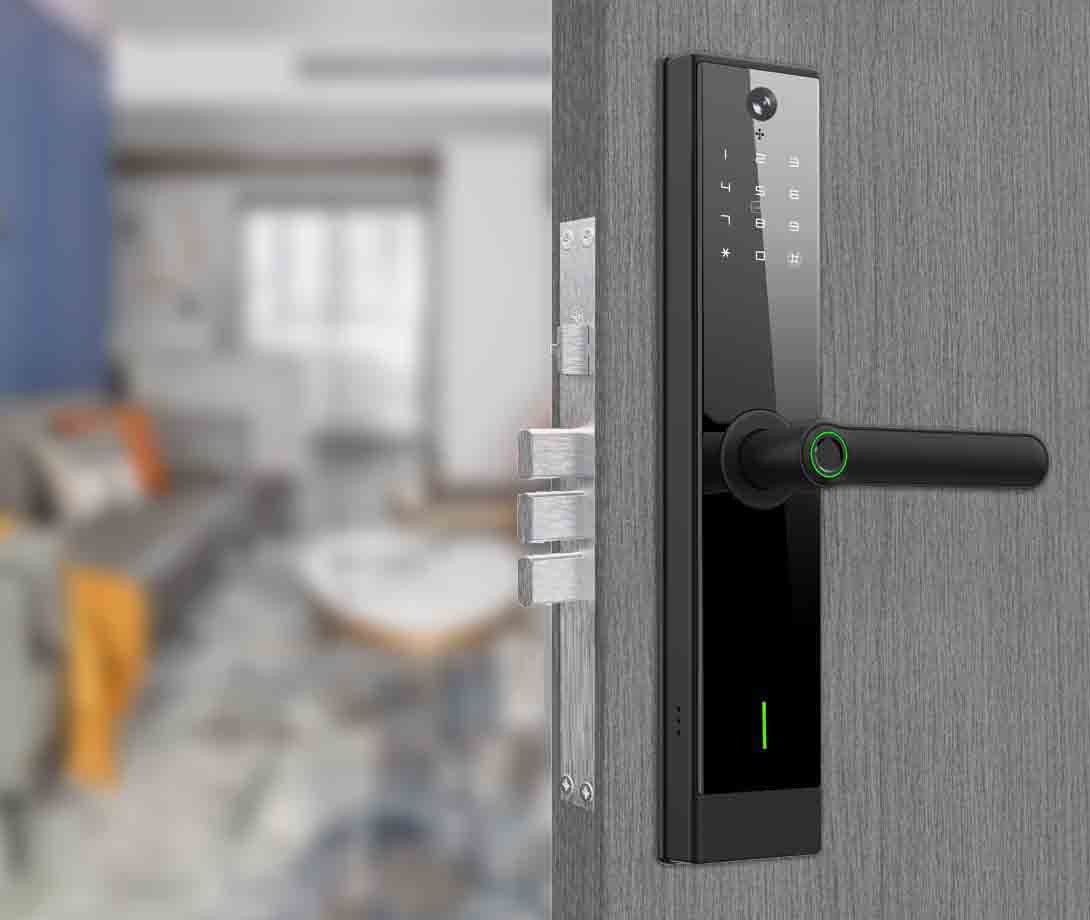Smart Locks vs. Digital Locks: Choosing the Right Lock for Your Home
If you’ve ever fumbled with keys in the dark, forgotten your house key at work, or worried about lost keys falling into the wrong hands, you’ve probably considered upgrading to a keyless lock. But when researching options, terms like “digital lock” and “smart lock” can be confusing. Are they the same thing? Which one is right for your home? Let’s break down the differences in plain English and help you decide.
1. The Basics: What Do These Terms Even Mean?
First, let’s clarify definitions. While Americans often use “digital lock” and “smart lock” interchangeably, they’re not identical. Think of them as cousins, not twins.
- Digital Locks:
These are keyless locks that use electronic authentication instead of physical keys. Common types include keypad locks (enter a PIN code) or RFID locks (use cards/fobs). They’ve been around for decades in commercial settings (hotels, offices) and are now popular for homes. - Smart Locks:
These are advanced digital locks with internet connectivity. They sync with your smartphone, voice assistants (Alexa, Google Home), or smart home systems. Features include remote access, auto-locking, and activity logs.
2. Key Differences: It’s All About Connectivity
The biggest distinction boils down to one word: smartphones. Here’s how they stack up:
| Feature | Digital Lock | Smart Lock |
|---|---|---|
| Internet Connection | No | Yes |
| Remote Access | No | Unlock via app anywhere |
| Voice Control | No | Works with Alexa/Siri |
| Guest Access | Manual PIN sharing | Send temporary e-keys |
| Power Source | Batteries (6–12 months) | Batteries + Wi-Fi/Bridge |
3. Why Americans Are Switching to Smart Locks
Smart locks aren’t just trendy—they solve everyday frustrations. Let’s look at three scenarios:
Scenario 1: Your Kids Keep Losing Keys
- Digital Lock Fix: Assign them a PIN code.
- Smart Lock Bonus: Get alerts when they come home.
Scenario 2: Letting in the Dog Walker
- Digital Lock Fix: Share your code (but risk forgetting to change it).
- Smart Lock Bonus: Send a time-limited e-key that expires after 5 PM.
Scenario 3: Vacation Security
- Digital Lock Fix: No physical keys for burglars to steal.
- Smart Lock Bonus: Check your app to confirm doors are locked 2,000 miles away.
4. Hidden Costs and Drawbacks
Neither system is perfect. Here’s what manufacturers don’t always highlight:
Digital Lock Limitations
- No Alerts: If someone guesses your PIN, you won’t know.
- Battery Anxiety: A dead battery means you’re locked out unless there’s a backup keyhole.
- No Integration: Can’t pair with security cameras or alarms.
Smart Lock Trade-Offs
- Hacking Risks: Internet-connected devices are vulnerable (use strong passwords!).
- Subscription Fees: Some brands charge for advanced features like video history.
- Wi-Fi Hassles: Weak signals? You’ll need a separate hub ($$).
5. Security Showdown: Which Is Safer?
Americans worry about break-ins, so let’s address safety head-on.
- Digital Locks:
Pros: No physical keys to copy. Tamper-resistant keypads.
Cons: Default factory codes are hacker targets (always reset them!). - Smart Locks:
Pros: Encryption, auto-lock timers, and breach alerts.
Cons: Tech-savvy thieves can exploit weak Wi-Fi networks.
Expert Tip: Smart locks with Z-Wave or Zigbee protocols (instead of Wi-Fi) are harder to hack.
6. Installation and Compatibility
Worried about DIY skills? Most locks are designed for easy installation.
- Digital Locks:
Typically fit standard door prep (check measurements!). Brands like Kwikset offer “rekeyable” kits to match existing keys. - Smart Locks:
Renters love options like the August Wi-Fi Smart Lock—it attaches to your existing deadbolt without replacing the whole lock.
7. Price Comparison: What’s Your Budget?
- Digital Locks:
80–200
- Smart Locks:
150–400+
8. The Verdict: Which Should You Buy?
Still stuck? Ask yourself these questions:
- “Do I want to check my lock from my phone?” → Smart lock.
- “Do I just hate carrying keys?” → Digital lock.
- “Am I tech-phobic?” → Stick with digital.
For most Americans, a hybrid approach works best: a smart lock for the front door and digital keypad locks for garages/side doors.
Final Thoughts
Whether you choose a digital or smart lock, you’re upgrading from the 19th-century key system to modern convenience. Smart locks offer flashy features but come with steeper costs and security considerations. Digital locks provide simplicity at a lower price. For the average U.S. homeowner, starting with a digital lock and later adding smart features is a practical path.
Remember: No lock is 100% burglar-proof. Pair your keyless system with motion lights, cameras, and common sense (like not sharing PINs on Instagram!). Stay safe and enjoy key-free living!
Post time: Apr-28-2025


